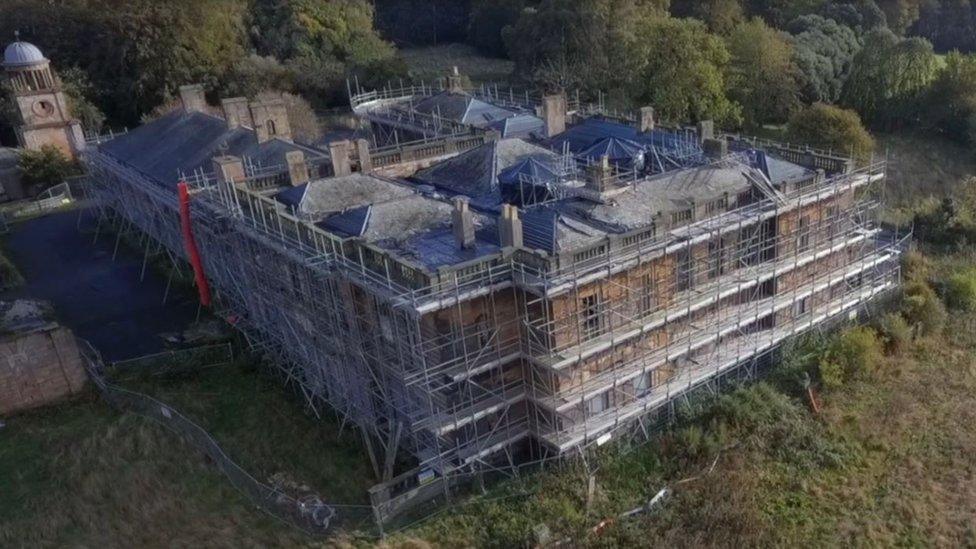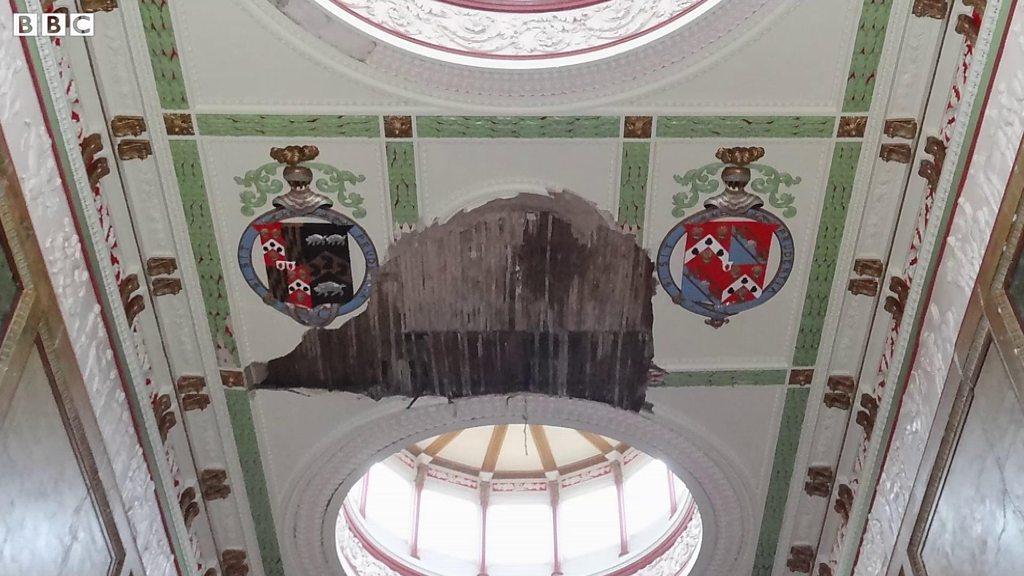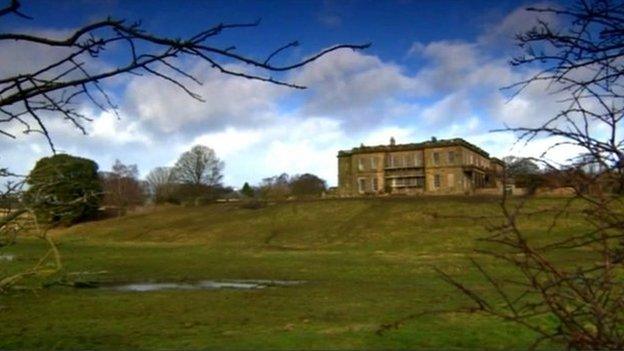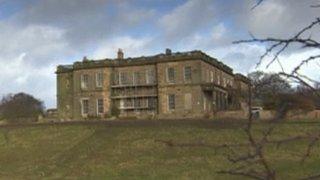Windlestone Hall renovation plans approved
- Published

Windlestone Hall, pictured in 2019, is the birthplace of former prime minister Anthony Eden
Plans to renovate an at-risk stately home that was birthplace to Anthony Eden have been approved.
Grade II*-listed Windlestone Hall near Bishop Auckland has been "seriously threatened" by "vacancy and vandalism", Durham County Council said.
It was taken over by the Windlestone Park Estate Preservation Trust in July 2020 which plans to restore the house, external and build 13 new homes nearby.
The trust also plans to turn the stables into business and café units.
The trust said the hall was at "severe and imminent risk of total loss" when the charity bought it, since when it has spent more than £1.4m in emergency works, external including a complete replacement of the main hall roof and 96 windows and rewiring throughout.
Further £1.15m works to make the "vast majority of the main hall reach an occupiable and completed state" are due to be completed by the end of 2021, a trust spokesman said.

Windlestone Hall history
Built in 1835 to a design by English architect and surveyor Ignatius Bonomi
Birthplace in 1897 of Anthony Eden, who served as prime minister from 1955 to 1957
Used as a prisoner of war camp during World War Two
From 1957 and 2006 was a local authority residential special school
In 2011 the council sold it to property developer William Davenport for the controversially low price of £240,000
Council further criticised when it was put back on the market in 2014 with a £2.5m price tag
William Davenport was jailed in 2016 for making fraudulent loan and mortgage applications to buy the property, which was then repossessed by the bank
In 2017 Windlestone Hall was bought by developer Carlauren
In 2019, the BBC revealed plans to turn it into a "high quality" care home had stalled with the building still derelict
Bought by the Windlestone Park Estate Preservation Trust in July 2020

Council planning officer Graham Blakey recommended the plans be approved.
He said the hall and surrounding park form a "nationally significant historic estate" but, since the mid-20th Century, it had been "denuded" of its character by "institutional use".
"It has been over the last five years that vacancy, vandalism and theft has seen the greatest decline to the point that the hall's survival was seriously threatened," the officer said.
'Inappropriate and insensitive'
Historic England said the plans offer a "sea-change in the fortunes of the estate" and while the new homes would "cause some harm" to the parkland, it would "not be to a notable degree".
More than 40 people wrote in support of the plan while 21 objected.
Supporters said it would bring the building "back to life" with "economic benefits" while opponents were concerned the new houses would be "inappropriate and insensitive".
The council's planning committee approved the trust's plan.

Follow BBC North East & Cumbria on Twitter, external, Facebook, external and Instagram, external. Send your story ideas to northeastandcumbria@bbc.co.uk, external.
Related topics
- Published14 October 2019

- Published30 March 2017

- Published28 September 2016

- Published4 November 2014

- Published15 February 2013
